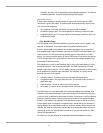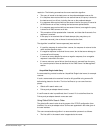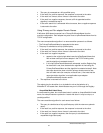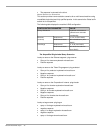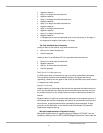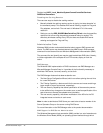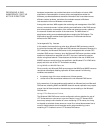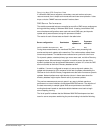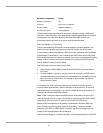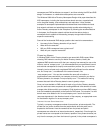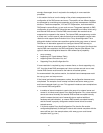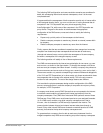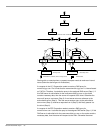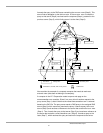
Hardware components Sizing
Number of processors Two
Processor Intel Pentium II 400 MHz
Amount of RAM 256 MB (megabytes)
Hard disk drive space 4 GB (gigabytes)
These measurements were based on the server computer running a DNS server
and with no other services in use. Where other hardware specifications or software
configurations are used when deploying Windows 2000 DNS servers, your
performance results are likely to vary from those documented here.
Server Capacity Planning
Planning and deploying DNS servers involves examining several aspects of the
network and the capacity requirements for any DNS servers that will be used.
In many cases, adding more RAM to a DNS server can provide the most noticeable
improvements in performance. This is because the DNS Server service fully loads
all its configured zones into memory at startup. If the server is operating and loading
a large number of zones, and dynamic updates are occurring frequently for zone
clients, additional memory can be helpful.
The DNS server consumes memory as follows:
• Approximately 4 MB of RAM is used when the DNS server is started without
any zones.
• For each addition of zones or resource records to the server, the DNS server
consumes additional server memory. Its estimated that for the addition of every
resource record to a server zone, an average of approximately 100 bytes of
server memory is used.
For example, if a zone containing 1000 resource records is added to a server, it
would consume approximately 100 KB (kilobytes) of server memory. he previous
recommendations are not meant in any way to indicate maximum performance or
limitations for Windows 2000 DNS servers.
Note: These numbers are approximate and can be influenced by the type of the
resource records entered in zones, the number of resource records with the same
owner name, and the number of zones in use at a specific DNS server.
Before a DNS namespace can be properly implemented in Windows 2000, the
Active Directory services structure needs to be available. The recommended
approach to the ADS and DNS design is to begin with the ADS design and then
support it with the appropriate DNS namespace.
Active Directory design is an iterative process. It involves developing an initial ADS
Windows 2000 White Paper
45



